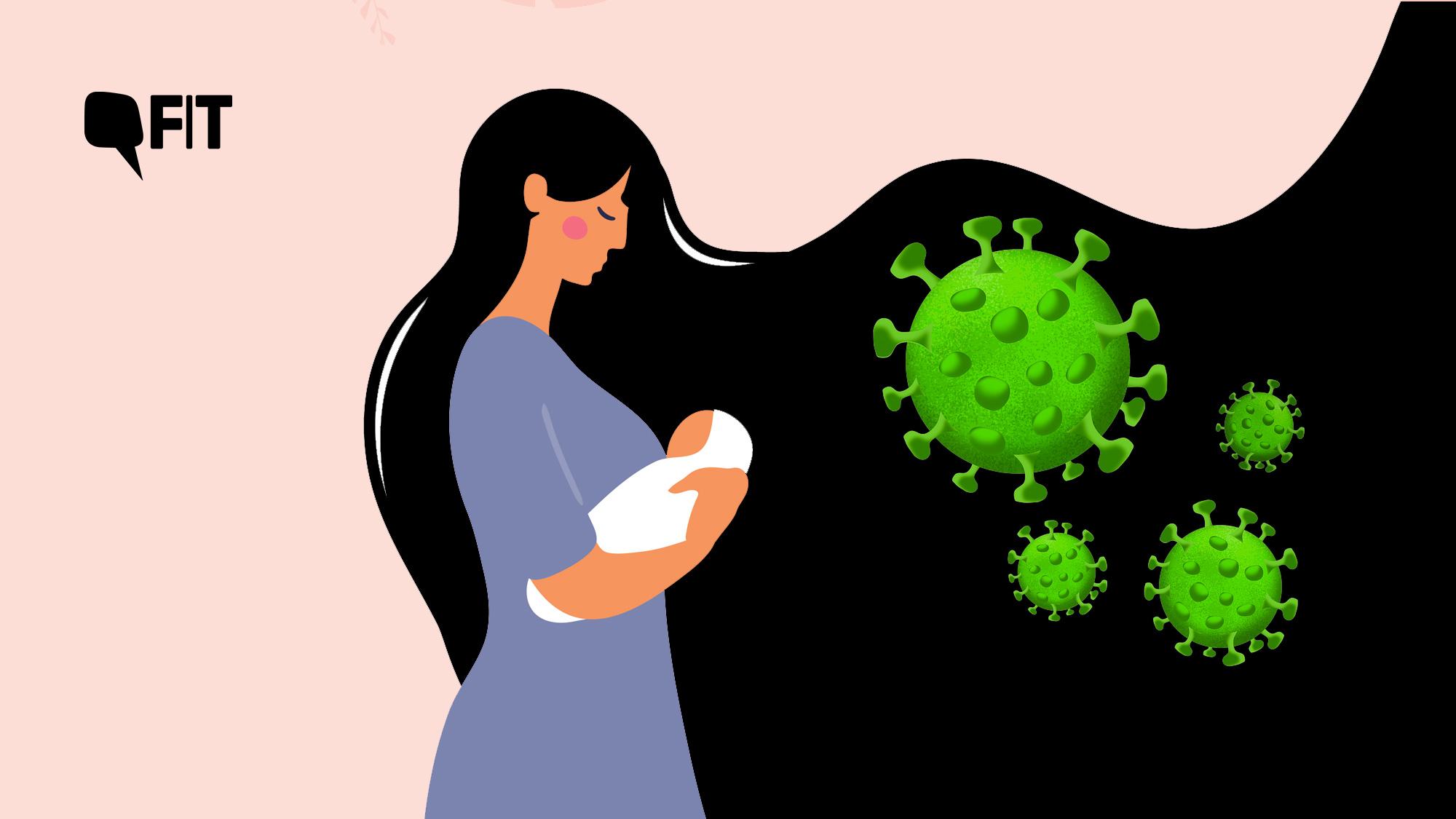How and what is fed to the children in their first two years of life has a particularly significant bearing on their survival, growth, and overall development.
It is recommended by WHO and UNICEF that breastfeeding should be started within an hour of the birth of the baby with exclusive breastfeeding for 6 months and continuation of breastfeeding for two years and beyond.
Breastfeeding not only plays a dominant role in child nutrition it also has long term effects and is beneficial for mothers as well.
Exclusively breastfed children score better on intelligence tests and have a lower risk of developing obesity and non-communicable diseases in adulthood.
In mothers, exclusive breastfeeding helps to drop the pregnancy weight faster, lowers the risk of breast cancer and ovarian cancer and acts as a natural birth control.
Breastfeeding Amid COVID-19
There have been concerns among mothers and caregivers about breastfeeding because of the ongoing pandemic. This includes whether the baby could get infected through breastmilk of a COVID positive mother or by being in her contact.
Currently available evidence suggests that the virus is not likely to be transmitted through breastfeeding.
However, it is important to remember the three W’s while breastfeeding: Wear a mask while breastfeeding, Wash hands before and after touching the baby, Wipe and disinfect surfaces regularly.
The risk of COVID-19 infection is low in infants and usually runs an asymptomatic or mild course. Breastmilk carries antibodies that provides immunity and is crucial for the baby as it protects against infections.
This makes breastfeeding more important in this pandemic when healthcare services may be disrupted or limited.
Therefore, it is recommended that breastfeeding should be started and continued irrespective of mothers’ COVID positivity status while following the precautionary measures. The use of infant milk substitutes must be avoided.
Breastfeeding vs Formula Feeding: What's Best?
Baby food companies may claim that their formula is ‘humanized’ and resembles mother’s milk, but it is not so. Breastmilk is a live milk which contains several white blood cells that makes the baby immune to infections and accelerates healing.
Unlike breastmilk, the nutrient composition of other sources of milk and milk substitutes is unsuitable for infants. It can cause indigestion and gas due to inappropriate quantities of protein in them.
Dilution of the substitute while preparation can make the food nutritionally inadequate for the infant. More importantly, there is an increased risk that a baby might get infected due to the use of feeding bottles.
It is popular belief that bottle-feeding and use of milk substitute is convenient, but it is far from the truth.
An infant needs to be fed 8-12 times a day, which means every 2-3 hours. With bottle-feeding one must clean and sterilize the bottle each time for feeding the baby.
Risk of occurrence of diarrhea, pneumonia, malnutrition, and mortality increases due the bottle-feeding. Infections in young children can cause undernutrition which itself makes them prone to infections.
It is a vicious cycle. Moreover, infant milk substitutes are expensive for the caregivers of the child not to mention the environmental cost it carries.
At individual level the cost of non-exclusive breastfeeding is facing the consequence of life-threatening infections, for the caregivers an indirect cost is involved in the term of out-of-pocket-expenditure for utilization of healthcare services for the treatment of infections caused due to bottle-feeding.
Food Companies Violate Laws on Breast Milk Substitutes
The Infant Milk Substitutes, Feeding Bottles and Infant Foods (Regulation of Production, Supply & Distribution) Act 1992, Amendment Act 2003 (IMS Act) bans all kinds of promotion of products such as baby foods and feeding bottles for babies under the age of two, including advertisements, inducements on sales, benefits to doctors or their associations, such as sponsorship, commissions to salespersons. The Act also mandates the companies to follow the labelling requirements.
Despite this the baby food companies have been found to violate the law time and again with tricky and aggressive marketing strategies.
Misleading innocent mothers about their product being ‘humanised’ and equivalent to breast milk, tying sales with companies of other baby products, providing discounts on e-marketing websites to promote sales, distributing pamphlets to mothers which often has incomplete and biased information to convince them that it is easier give baby food to infants are few of them.
They directly approach the mothers or build links with health professionals to use their credibility to promote their product. These infringements of the law are just the ones recognised by designated agencies. Many such violations continue to occur which goes unnoticed.
Without creating the necessary awareness among the parents and the community the baby food companies will continue to undermine the IMS Act and such incidents are likely to go unreported.
Breastfeeding is the most cost-effective investment countries can make for young children and the future economy.
Mobilising communities to recognise the shared responsibility and protecting breastfeeding through effective implementation of IMS Act is a priority.
(The authors: Dr. Amir Maroof Khan, MD, Professor of Community Medicine and Honorary Secretary, MIYCN National Working Group of Indian Association of Preventive and Social Medicine
Dr. Naudibya Majhi, MBBS Postgraduate student of Community Medicine University College of Medical Sciences, and GTB Hospital, Delhi)

